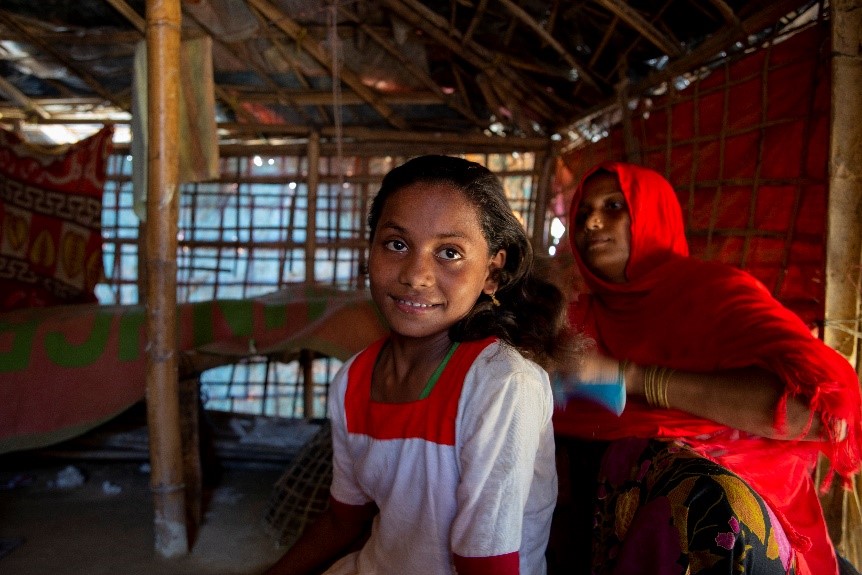
Rohingya teen brought to Bangladesh as a young baby says ‘I wish to see Myanmar one day’
Kasmin Ara, 11, has practically been a refugee all her life. Unlike most of the refugees who moved to Bangladesh in 2017, her family was among the first wave of refugees who had lived in Kutupalong registered camp, a refugee settlement since the 1990s.
Kasmin Ara revealed that she has never seen Myanmar, or at least remember how it looked like.
Although born in Myanmar, Kasmin Ara was only 18 months when their family first moved from Myanmar to Bangladesh about 9.5 years ago to escape constant torture and intimidation by the local authorities. In Kutupalong camp back in 2010, Ramida, 29, Kasmin Ara’s mom, shared that they had difficulties moving around the camp and finding livelihood. With her husband Salim, the family decided to seek a better refuge in India for their children, some years after living in the camp. She recalled:
“After coming to Bangladesh, we used to stay nearby Kutupalong registered Refugee camp, in a tent. We used to somehow earn our living by chopping and selling trees from the nearby hilly forests. But forestry people stopped us and took away our choppers. We then faced severe problem even in commuting from one place to another.”
But Ramida lamented that life was not easy. She explained her journey from Bangladesh to India around 2013:
“After coming to Bangladesh [in 2010], we had to face great problems in terms of livelihood. All the places were unknown, we were newcomers here, couldn’t work. Later on, one of my sisters who used to live in India sent us some money and asked us to join her. After receiving the money, somehow we managed to find an agent. [But] he then sold us at Indian border and flew away with the money. We stayed there for almost a year as bondservants. We were not allowed to go anywhere, not to even learn their language. Kids used to work and earn some money.”
“Somehow, we got to meet a Bangladeshi who used to do business there. We requested him to help us, he gave his mobile number. We requested our master to allow us to leave for Bangladesh, where we could at least beg for living. This is how we could save some money around 5-6 thousand. That man of Bangladesh took us to Agra and managed to buy us a sim card for mobile, food, accommodation and gave us some money. With his help my husband and kids could work and earn bread and butter for us in India. We were in peace.”
“We were in peace at Agra. When the torture heightened in Burma, [which] we got to know that through internet and news. India’s government said, as a result of the Islamic holy sacrifice of cows in Hyderabad and Delhi, the Muslims were tortured, including in Burma. We got to know that through Hindi news. The Indian government said that we will host people from every country except for Burma. Burmese people who lived in India said “shoot us” But even after that we [knew] won’t leave for Burma. When our country will be in peace, we will leave voluntarily. When the situation started to get worse in Burma, we heard through the news that [Rohingya] people are going to Bangladesh and living in peace. [We decided] ‘Let’s go there then.’”
“Then we contacted an agent. We were scared to travel all alone. People used to threaten us saying they will arrest you. My parents, relatives, in laws everyone left Burma and came to Bangladesh. Some have been killed, houses have been burned. I used to cry all the time. My husband used to say, we will have the same fate like these people. Then we met an agent. While living at Agra, we used to work with scrap. We sold all of them and in exchange of the train tickets he took all our money. We stayed 4 nights nearby Shatkhira border in India. At one night, we crossed the border. After asking several people, we could reach Chittagong spending all the limited money we had. Our relatives, who were in the camp, sent us money through mobile banking and then we came to this camp.”
When asked about why they left Myanmar 9.5 years ago, Ramida shared some of the horrible instances of initimidation and torture by the local authorities which her family went through. She said:
“Once, my husband went for fishing, we used to stay at Sudhapara and Kumarpara. He had permission paper from Dhaliapara Ghati to go for fishing in the sea. The military caught him and another 3 people from Mangala khal (creek), though he had papers with him. We had no clue of his whereabouts for 4 days. After 4 days, someone from Singham’s place called and informed that 4 of the people of our tribe have been caught and kept there. They also informed to provide them with 100,000 [Burmese Kyat] for penalty for each otherwise the 4 people will be sent to jail at Mongdu. I went to all my relatives but none of them helped me. Then I sold my only land where I used to live and got my husband out. I felt helpless in that situation with my kids but had no choice. If I wouldn’t have done this, how I would have survived? I feel very upset while sharing those experiences, I feel like crying.”
“Though I got my husband out, the military used to torture him a lot when he went for fishing. We lived at some other person’s place. Frequently, they would arrest my husband at night, so we couldn’t sleep at night but stay awake to guard.
Ramida also shared another experience that also brough her to tears. She said:
“On the other hand, they were also looking for us to pay the penalty for our newborn, 50,000 Kyat (Burmese Currency).We work for a day, we get 1,000-1,500 Kyat (Burmese Currency), whereas around 1 kg rice is 500 Kyat, so how will we pay the penalty? But they used to beat my husband every now and then for the money. They also took away our fishing net for that penalty and stopped us to go for fishing. We suffered a lot for this and couldn’t tolerate anymore but leave and came to Bangladesh.”
“[In Burma], The day when the baby is born, we have to take a Muhcheran (verbal agreement) from the area’s Singham (leader) for 500 Kyat (Burmese Currency). After that, we have to collect a paper from Pokkhara (local government office for birth registration). Then we have to inform it to the Ghati (government office). To include the newborn’s name in the birth list, we need to provide 50,000 Kyat (Burmese Currency). But we could not enlist the name due to scarcity of money. As 2 months passed by, we had to provide with 10 gallons of oil and 50,000 Kyat (Burmese Currency) as penalty.”
When asked about her fears for her children, Ramida said:
“Yes, I have such fear. In the [SKUS] meetings they always say to look after the kids, when they go nearby water or even in the latrine. Not to send them alone anytime of the day. That’s why if I don’t get to see her within 1 hour, I get out to look for her. People are gossiping about kidnappers, human traffickers, they talk about this in the meeting every now and then. I get worried learning all these. Whatever sorrows I have faced in life, just before I sleep, I worry about everything, I don’t even get hungry because of that. I wish I could tear my chest and show the sufferings.”
“Years ago in Kutupalong camp, one of my cousins who was 18 years old, somehow got lost and it’s been 6 years we have no trace of her. That’s why I feel scared of my kids. That’s why I always pray to Allah, take care of my kids, keep on asking people if they’ve seen my kids and get them back to home before sunset.”
About why they want to return to Myanmar:
“That’s my own country, country of my grandparents. Though I am pretty at peace here but not totally satisfied. I wish to go back. If my brothers somehow manage to bring peace at my country, if Allah looks back to us with mercy and all the other countries do proper justice, we can get back there.”
“In my country, I used to do fishing on my own but here I have to buy rotten fishes. I can only buy when I have money, otherwise how would I? Some of the people are buying fish for 500 taka but we don’t even have the scope to earn 50 taka. Those who have money from abroad are able to eat. I don’t have that scope and there’s no one to give me anything. Now what I need is 10-50 taka’s chili, some snacks for kids, cigarette for my husband, betel leaf and nuts etc. which I borrow from the shop while promising that once my husband gets some work, I will pay back. If my brothers ensure peace, then I will get back.”
“My elder kids never want to go back as they know Moghs(Burmese army) kill people. When I was leaving Burma my eldest one was 6 years old and Kosmin Ara was 1.5 years old. She wants to see Burma but eldest one said how can we get back there, militaries are killing our people, how can we get back, we won’t go to Burma, we will live here only. But sometime they also say Burma is beautiful, our grandparents used to live there, we want to see that place.”
Dream for her kids:
“How can I share my dream, I always ask Allah if my life will go on like this only! People are saying they will take us back. But I say, until we get assurance of peace, we won’t go there. Now every country knows about the torture we have faced but previously none of the countries knew. But Bangladesh always gives us shelter, my parents and in laws used to say that. Burma always gave us false assurances of peace and started torturing us right after we return. So what will we do after returning there? What will happen to our lives? To our kids’ lives? I always remain worried thinking that.”
“I console my kids saying that, oh my kids, when none of the people of our country could study, many of them could study with the help of their money. And those who had little money couldn’t study. So they realize how important it is to study. If they study, they won’t have to be laborers or servants. You can earn through your pen. People will recognize you”
“I always teach them the importance of studying, otherwise they will end up being servants or laborers. That’s why you should study, pay some respect and study.”


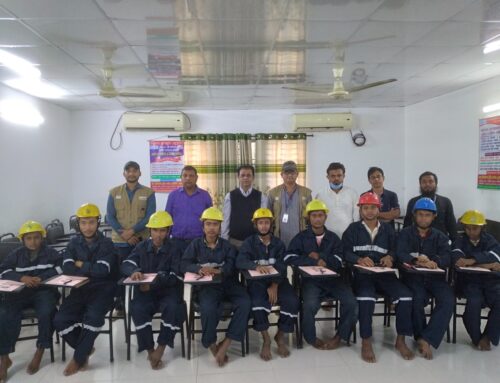
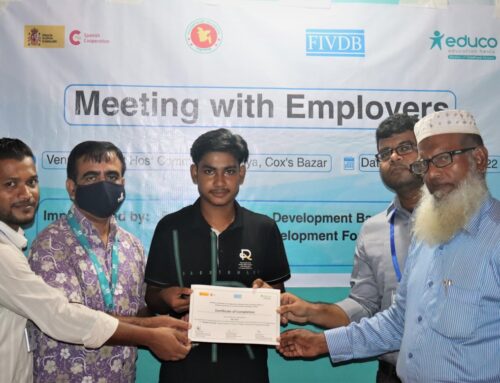
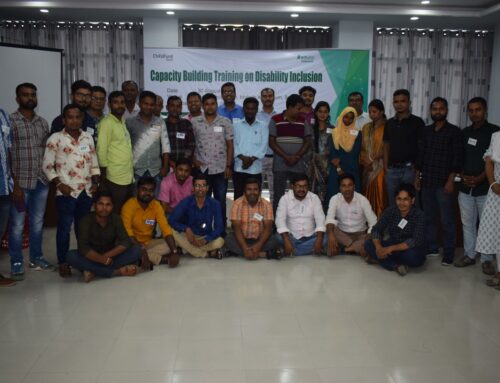
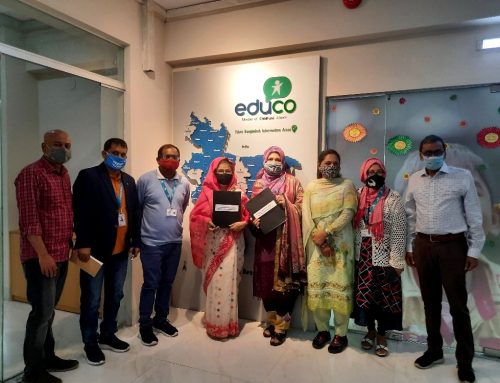
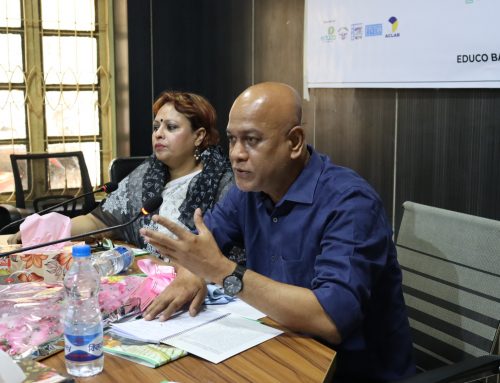
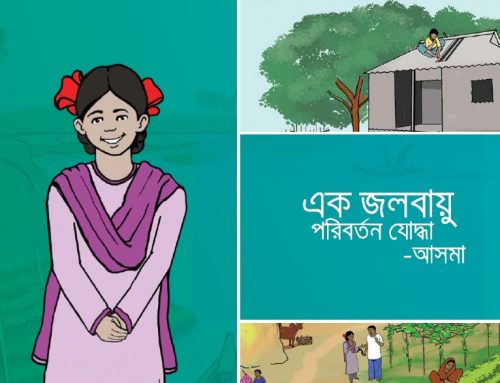
Leave A Comment